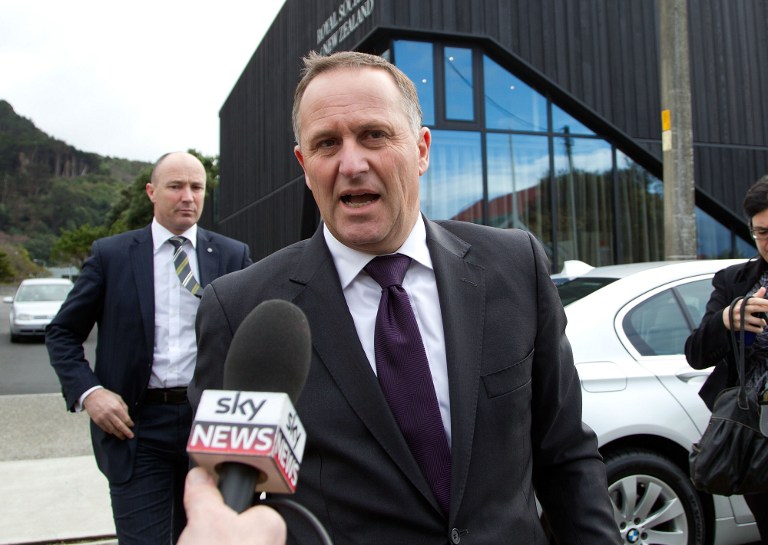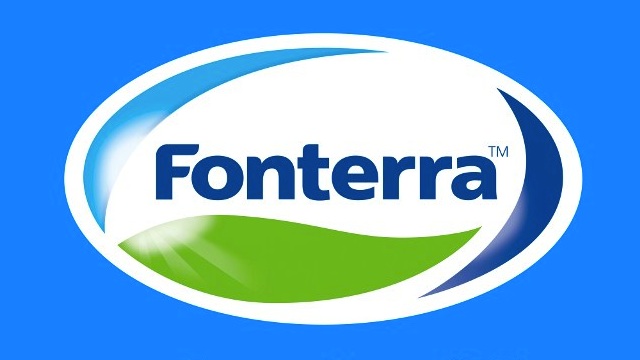SUMMARY
This is AI generated summarization, which may have errors. For context, always refer to the full article.

WELLINGTON, New Zealand (UPDATED) – New Zealand Prime Minister John Key on Monday, August 5, accused dairy giant Fonterra of delaying sounding the alarm over products tainted with a potentially fatal bug, as investors sent the company’s shares tumbling.
Fonterra revealed on Saturday, August 3, that a whey product used to make infant formula and sports drinks had been contaminated with a bacteria that can cause botulism.
The announcement prompted immediate action from China, a major market for New Zealand’s dairy products, which ordered recalls of some potentially-tainted products and demanded affected importers check their sales records.
Key said he was concerned at the impact on farm-reliant New Zealand’s reputation as a supplier of “clean, green” dairy products, particularly in Asia, where its infant formula has long been regarded as gold standard.
Key said that tests last year showed there were problems with three batches of whey, adding it was difficult to understand why Fonterra did not act immediately.
“I’m a bit staggered that in May of 2012, when this whey was produced, that it (Fonterra) did show something in its testing, but clearly not something that was of concern to the company because they allowed it to go out,” he told Radio New Zealand.
“You would have thought that for a business where its top business is essentially based around consumer confidence, food safety and the quality of its products, that they are risks that you wouldn’t take.”
Fonterra has not yet responded to the claim.
Key said the government had a team of more than 60 personnel working to contain the fallout from the contamination and would eventually seek a “forensic” examination of how Fonterra had handled the crisis.
Chris Galloway, a senior lecturer in public relations at Massey University, said there were concerns Fonterra had not learned the lessons of a 2008 scandal when six children died and more than 300,000 fell ill after one if its part-owned Chinese partners illegally laced milk with the chemical melamine.
“The repetition makes it harder for people to accept that this is an isolated incident,” he told AFP.
The Fonterra Shareholders’ Fund fell 8.7 percent at the open on the New Zealand stock exchange as investors had their first chance to react to the scare, later recovering slightly to be down 5.9 percent at NZ$6.70 around midday.
The countries that the contaminated whey was exported to include Australia, China, Malaysia, Saudi Arabia, Thailand and Vietnam.
Selling stopped

State media reported late Sunday, August 4, that one of three Chinese companies that used the potentially tainted material, baby formula firm Dumex, has been ordered to “track down its sales records”.
The other two companies ordered to stop selling products containing questionable ingredients were Hangzhou Wahaha and Coca-Cola’s Chinese subsidiary.
Wahaha said that it had used the Fonterra ingredients in soft drinks and had not detected any bacteria.
Coca-Cola said in a statement it had used 25 kilograms of the affected powder for its Minute Maid drinks, but the “super high temperature” used in production meant it would be safe to consume. The firm added that it was nevertheless recalling the affected products.
There are reports that Russia has recalled Fonterra products and advised customers not to buy them.
Singapore has also recalled some Fonterra-linked baby milk products, saying it was a precautionary move.
Fonterra said there had been no reports of illness linked to consumption of the tainted product, which contains the bacteria Clostridium botulinum, which can cause botulism, an infection that can lead to paralysis and death.
The company has blamed the contamination on a dirty pipe at a North Island processing plant.
The New Zealand Infant Formula Exporters Association said none of the products made by its members were affected but it had been caught in a global backlash due to the poor quality of information being released by Fonterra.
“There wasn’t full and frank disclosure right at the beginning and this has led to a lot of rumors spreading in the marketplace, which is what we’re seeking to counter now,” spokesman Chris Claridge told TVNZ.
New Zealand is the world’s largest dairy exporter and the NZ$10.4 billion ($8.1 billion) sector accounts for about 25 percent of its exports.
Fonterra accounted for 89 percent of New Zealand’s milk production in 2011, collecting 15.4 billion litres, according to the company’s website. – Rappler.com
Add a comment
How does this make you feel?
There are no comments yet. Add your comment to start the conversation.